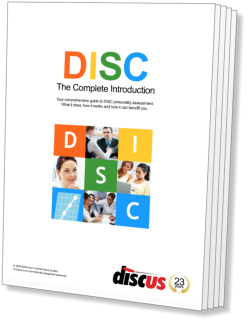Suitability Comparison
The ways in which different styles interact with one another is a very broad and complex subject, and a full treatment of all the issues involved lies beyond the scope of this guide. Nevertheless, it is possible to make generalised comments describing the basic dynamics of different possible relationships.
For a comprehensive understanding of the ways in which two, or more, people interact, a full DISC profile is more appropriate than the broad Style Card approach. However, the simplicity of the Style Card, and its ability to break down individual approaches into only one of a few basic types, makes it more appropriate for the basic discussion of this section.
In this section, we look briefly at the ways in which each of the four main types of the Style Card interact with each other, a total of ten combinations. This information may prove useful in developing teams, or examining the interactions of individuals within departments.
|
|
|
Two Drivers: Because it is in the nature of a Driver to seek authority and dominance, any relationship between two individuals of this kind will inevitably contain a measure of tension, as each vies for the dominant position, and not unusually this tension can break out into open conflict. Drivers can generally only work well together if they have goals in common, and each has a defined area of authority. |
|
|
|
Driver and Communicator: As with two Drivers, this is often a difficult pairing, as each is assertive and demanding of the other. Because the Driver is interested in material and business success, while the Communicator focuses on social success. This means that a Driver and Communicator can make an effective partnership if carefully guided by a manager. |
|
|
|
Driver and Planner: This is an effective pairing purely in terms of results, because the Planner, as their name suggests, is capable of preparing detailed plans and carefully considering their implications, while the Driver possesses the thrusting, assertive approach needed to put these plans into effect. On a personal level, however, the degree of difference between these two styles often makes it difficult for them to respect one another's abilities. |
|
|
|
Driver and Analyst: This combination is often effective in a business sense. The Analyst's ability to work with structure and detail, coupled with the drive and determinism of the Driving partner, mean that each style covers many of the other's weaknesses. Both are Controlled in approach, and this often gives them enough common ground to develop a mutual respect, although this partnership will rarely be close in a personal sense. |
|
|
|
Two Communicators: On a purely personal level, relations between Communicators tend to be good. The cheerful, outgoing style associated with the Communicators reacts to nothing so well as another person of the same type. On occasion, a sense of light-hearted competition can appear as they jostle for personal attention, but this rarely escalates into actual confrontation. The joviality and sense of fun connected with Communicator styles, however, means that such a pairing can have a negative impact on performance in purely business terms. |
|
|
|
Communicator and Planner: This is generally a successful partnership. The Planner has the steady, reliable style to keep the Communicating partner from losing sight of their goals or intentions, while the Communicator has the social extroversion necessary to build a personal relationship. Under some circumstances, the Planning partner can become quite dependent on their more assertive team-member. |
|
|
|
Communicator and Analyst: These are two diametrically opposed styles with entirely different sets of values, and hence it is often difficult for them to form an effective working relationship. Their relative skills and abilities, however, tend to complement each other well in a practical sense, and on the rare occasions where two people of these kinds are able to form a workable partnership, the results are often impressive. |
|
|
|
Two Planners: Two solid, dependable and loyal individuals with open and sympathetic attitudes, a partnership of Planners will often work well together, and frequently form quite a strong bond. A potential problem here, however, is that each Planner's need for time to consider and plan will be increased exponentially by attaching them to another with the same need. Ideas or plans can sometimes be exchanged and corrected between the two partners over a very long timescale indeed before any action is finally taken. |
|
|
|
Planner and Analyst: A fairly effective and complementary partnership, but somewhat unpredictable. The fact that both styles are Receptive provides the foundation for a working relationship, but specific factors can sometimes work to undermine this (for example, the Planner might be looking for a strong personal tie, while the Analyst would have no particular interest in such a relationship). |
|
|
|
Two Analysts: Analysts are not a naturally competitive style, and yet when two come into contact with one another, a type of competition can evolve. This normally consists of attempts on either side to demonstrate superior skills or knowledge. If they are able to overcome this tendency, however, Analysts can build a workable and productive team. |

